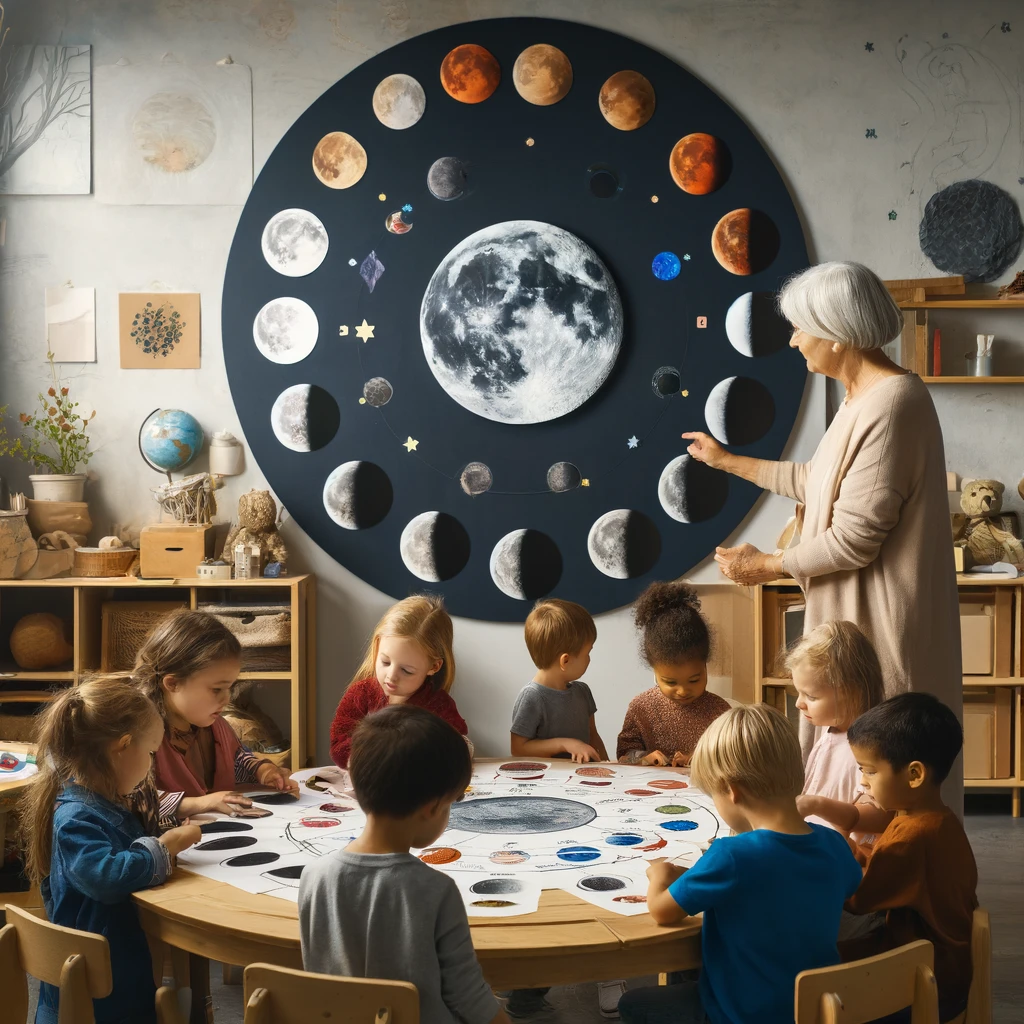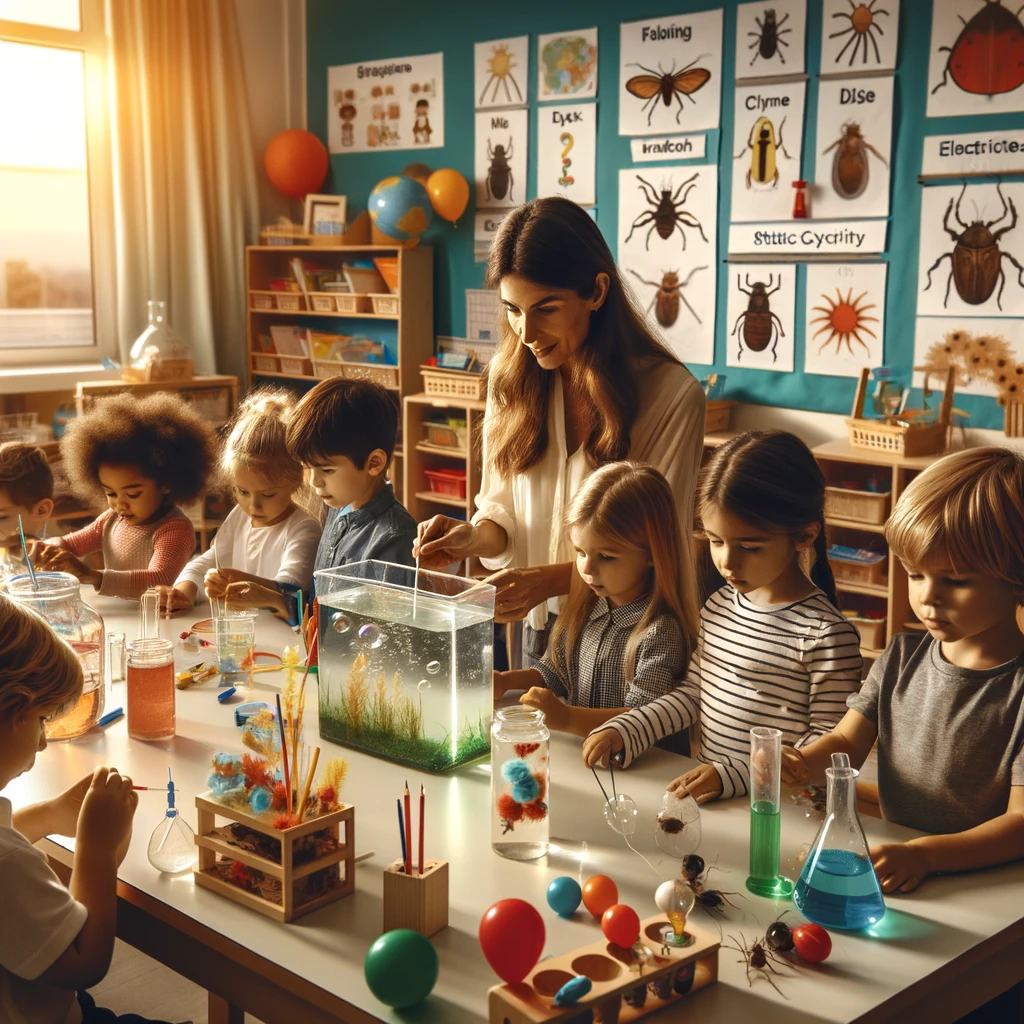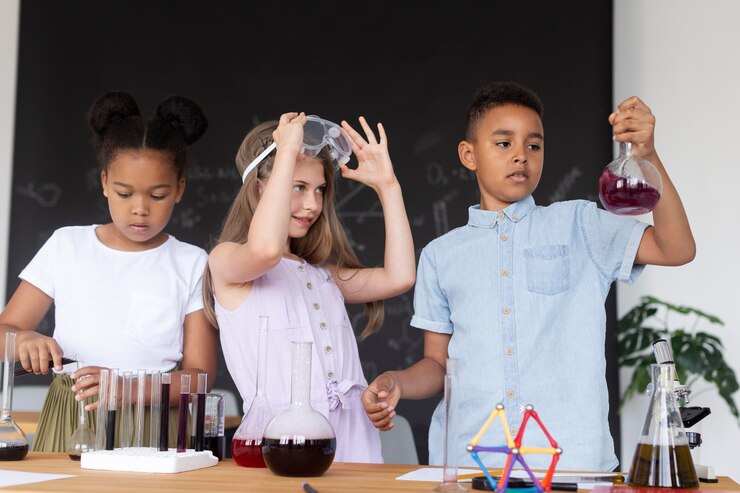Introduction to science in Montessori?
The word science is derived from the Latin word scientia meaning “knowledge”. To Aristotle science is;
“A body of reliable knowledge that can be logically and rationally explained”
Generally, Science is all about having a clear thinking approach towards collecting information and solving problems. Young children are fascinated and astounded by scientific phenomena around them like burning life, boiling water, lighting, electricity, magnetism, rainbow, etc. They have a natural urge to explore the truth of nature.
Thus, simple science activities that enhance observation, thinking and problem solving should be introduced to young children. However, the director should keep in mind that the child, the motor sensorial period of life, could not absorb long verbal explanations ; rather he learned much from the real hands-on experiences.
There, like other areas of early childhood Montessori curriculum, concrete materials should be provided to children to have sensorial experiences and long verbal explanations should be avoided. It happens at the age of six and beyond that the child attains a different and mature mental approach when he can bracket together his imagination and the explanations given to him on various processes going on around him.
Science in Everyday Life
Science is observing, exploring, and testing things. The good news is Introduction to science in Montessori?, one does not have to go to a laboratory or need a specific environment to study science. Science is present everywhere, in the school, on the road, in the garden and even at home. Teachers and parents can easily teach science to the children by simply pointing out the wonders of science around them. A few science-related activities which can be enjoyed with the children are;
Observe Natural Object
Using a magnifying glass to observe natural objects can extremely increase the interest of the child in the activity. Pick up some natural objects like flowers, stones, a few blades of grass, even insects and see them through a magnifying glass. Ask the child to do the same and tell what he observed. Find those things that fascinate the child but could not be observed live e,g. Ants, butterflies, inside of the seed etc.
on the internet or in a book and share the information with the child. This will introduce the task of observing things to the child and teach him how to look into the details of the things. Moreover, it will motivate him to gather facts about different objects.
Ask the child help you Cook
Ordinary things happening in the kitchen can be astonishing and fascinating for the child for instance boiling water, ice formation, melting butter, dissolution of salt or sugar in water, physical changes in a mixture when they are baked are common place for the elder but they may rise various questions in the mind of a child such as why are the bubbles produced on the surface of water when when it gets boil, where does the salt go when it is dissolved in water etc., and by answering such simple questions the child can be made aware of the basics of Introduction to science in Montessori?. 
Notice the Phases of Moon
Draw the child’s attention towards the pattern of the moon appearing during various phases. A simple telescope can be used to foster the interest of the child and acquaint him with the study of astronomy.
Look the child’s favorite Activities
Play and talk about the favorite activities of the child. If it’s a ball, ask the child why the ball comes back to the ground when it is thrown up in the air. Or simply talk about the pitch and the speed. Invite the child to examine how the wheels of the vehicle turn etc.
Involve the child in Creative Activities
Give the child a block, play dough or a model of the Solar system. Ask the child to make something with the bollocks or play dough to help the child to know how to deal with the materials.
Science Experiments Introduction to science in Montessori?
Young children love to do science experiments Scientific experiments Introduction to science in Montessori? are carried out to know whatever is tested is true or not. the teacher should illustrate an experiment in front of the students in order to familiarize them with all techniques used in it and to enable them to perform it on their own time and again .
A child at the preschool age is pre-operational, the best way of learning for him, is to interact with the environment and gain experience. Even though the child cannot learn all about science at this stage however educational experiential activities in the classroom can help him get the basic concepts of Science. There are a lot of experiments that can be done in the classroom for preschool kids, they are not only easily carried out but also add a lot to the information of the child. 
When the students have the ability to write, they can be taught to document the experiment and draw and color the experiment with the label after and before. the students may also be encouraged to compile their own booklet of science experiments and activities they have dine. They following information about each experiment can be included.
- Name:
- Date:
- Experiment title:
- Question:
- Hypothesis:
- Material:
- Procedure:
- Before diagram:
- Observations:
- After diagram:
- Conclusion:
The teacher should also Introduction to science in Montessori? vocabulary related to the science experiment and activities carefully as done in other areas of Montessori curriculum.
The teacher Introduction to science in Montessori? should adopt an easy approach towards the experiments. The children should also be guided that we do not always get the expected results and this is all art of the learning process. We must check if we have followed the procedure correctly and try again. She can also tell them stories of some important discoveries made when the experiments go wrong.
